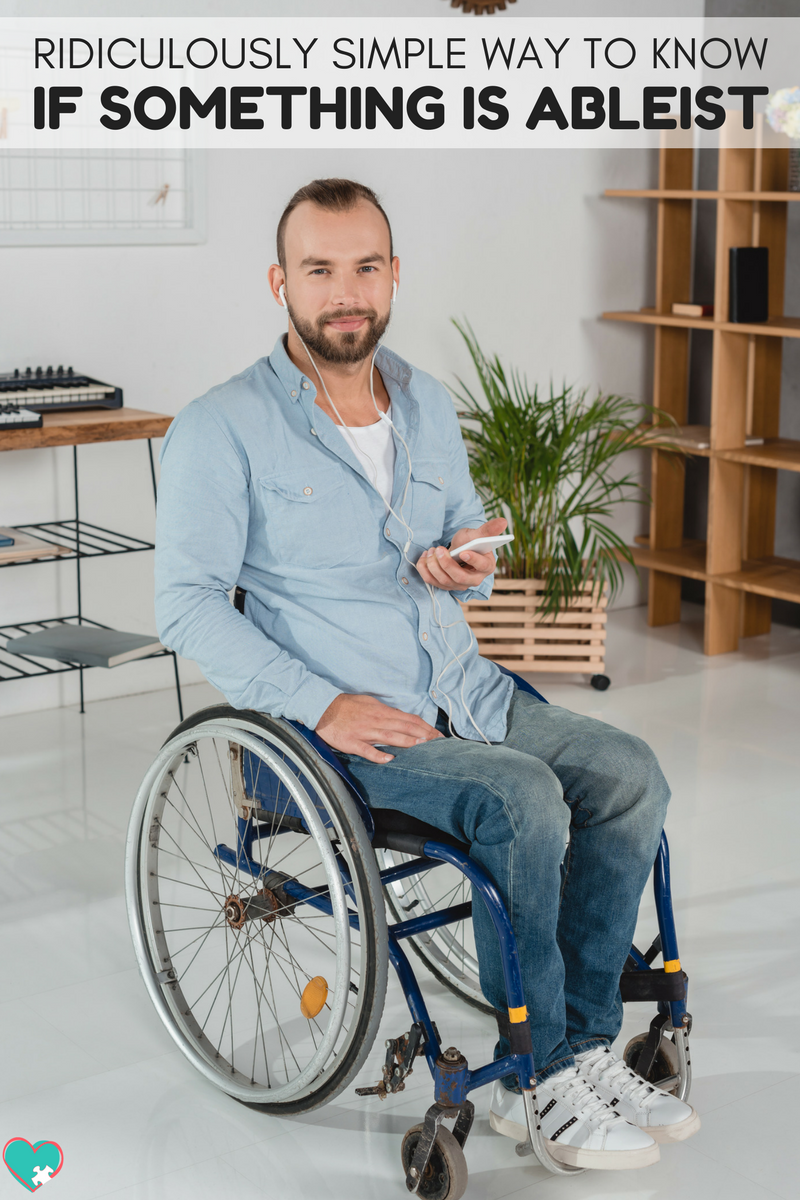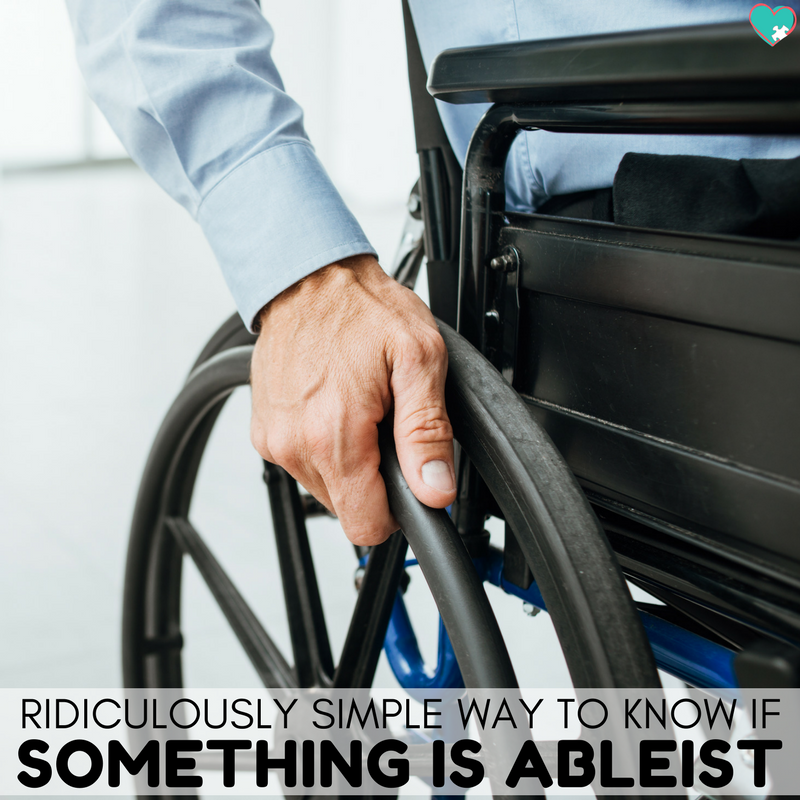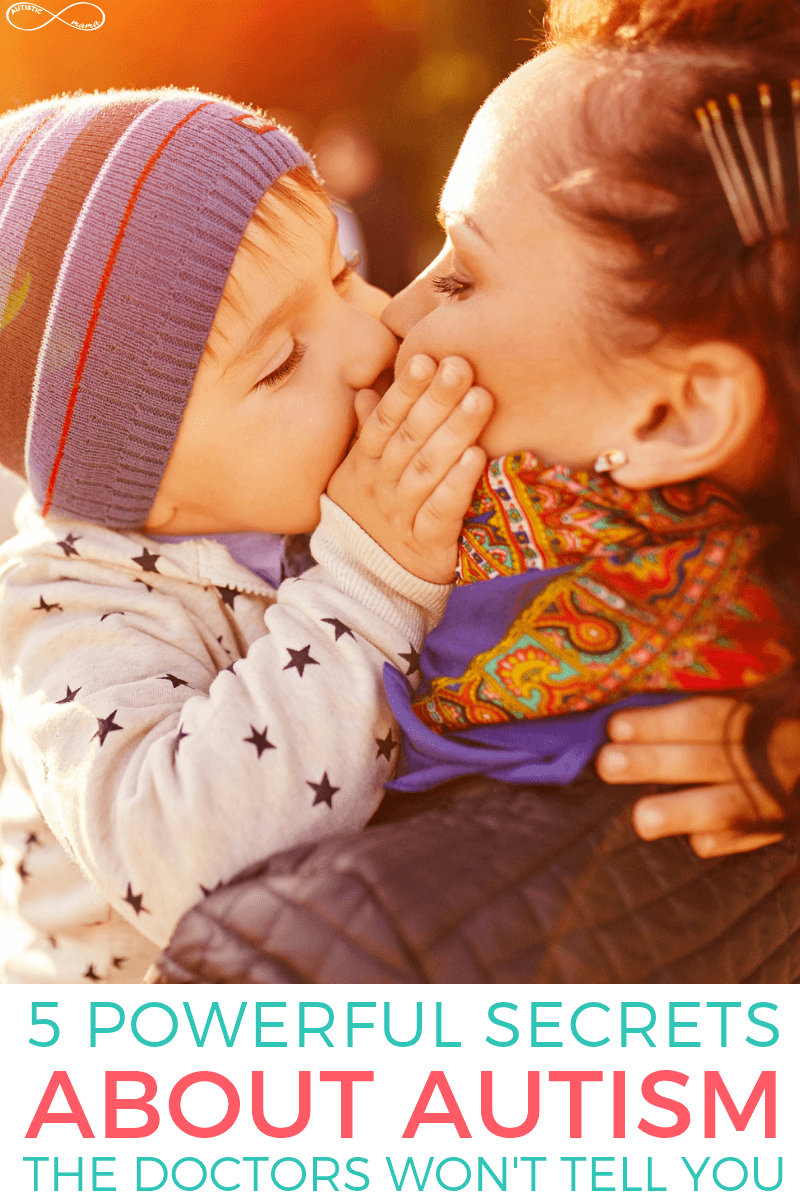The Ridiculously Simple Way to Know if Something is Ableist
There are many "mommy wars" topics that get really heated. Breastfeeding or formula? Co-sleeping or CIO? Working mom or stay at home mom?
One of those battles is over the kid-leash-backpack-things.
Moms either love them and swear by them, or they hate them and think they're cruel.
Now, this post isn't about my feelings on the kid-leash-backpack-things, but about a conversation in a mom's group that stuck with me forever.
"I hate those leashes. It's absolutely unacceptable to treat your child like an animal and leash it. I mean, unless they're disabled or something, then I guess I understand it. But if not, it's degrading."
So, just to point out, it is degrading and unacceptable to do something to a typical child, but it becomes okay when they have a disability?
Friends, this is ableism.
You may have never heard of ableism, or you may think it's the newest term in our "politically correct" world. Let me tell you, it's real, and it comes from all parts of society.
Luckily, with this post, you'll easily be able to know if something is ableist or not.
The Ridiculously Simple Way to Know if Something is Ableist

What Does "Ableist" Mean?
Ableism is discrimination in favor of able-bodied people.
Seems simple right? And your first instinct might be to say, "well of course I don't discriminate against the disabled!" But the fact is, you might without even realizing it.
See, not all ableism is easy to spot, and many people find themselves justifying ableism.
Note, this isn't even necessarily your fault. We all have grown up with the obvious and not-so-obvious forms of ableism shoved in our faces, just like our parents did.
We do, however, have the ability to recognize and call out ableism when it occurs to help our children grow up differently than we did.
Obvious Ableism
There are some forms of ableism that are completely obvious to everyone.
If you're cruel to disabled people, use the R-Word, or believe that disabled people should have less rights than able-bodied people.
Here's the issue. Most people can recognize the obvious ableism in society, but as a society we try to justify it.
"I grew up saying it, it's too much of a habit"
"Of course they should be paid less, they do less work"
"The parents should make that decision, they're the ones dealing with her"
^ those are all examples of justifying obvious ableism.

Not-So-Obvious Ableism
There are also some not-so-obvious examples of ableism that might be harder to spot. These might be called "micro-aggressions".
These could be as simple as judging a person who "doesn't look disabled" who uses a disabled parking space or telling your child not to hang out with their classmate with ADHD because they're a "bad kid".
There are also examples of how society as a whole favors able-bodied people and discriminates against disabled people like having inaccessible buildings, or unattainable rules for "societal norms".
It can be a lot harder to point out these micro-aggressions, but luckily, I've got a ridiculously simple way to know if something is ableist or not.
Replace it With a Race and/or Gender
See, I told you this would be ridiculously simple.
If there were tons of buildings around town that made it impossible for a black person to enter, that would definitely be racist. That means doing it to disabled people is ableist.
"I'm all for inclusion, but if they're being really distracting, it isn't fair to the other kids to share their classroom". Is that okay to say about Hispanic people? Nope? Then it's also not okay for disabled people.
What if a business said they can't hire women because they don't work as hard? We'd be up in arms. If it would be sexist, it is definitely ableist.
Would it be Acceptable for an Able Person?
In case you find a scenario that doesn't make sense with the above method, I've added another one.
If it would not be acceptable for an able-bodied person, it's not acceptable for a disabled person.
In the controversy with The Mighty, many of the parents said that they could write whatever they wanted about their disabled children because their children would never know how to read.
That's extremely ableist.
If you wouldn't do something to an able-bodied child, do not do it to your disabled children.
It's honestly that simple. In fact, it's so simple, I can't believe it needed a post.
If you loved this post, you might also enjoy...
5 Powerful Autism Secrets the Doctors Won't Tell You

